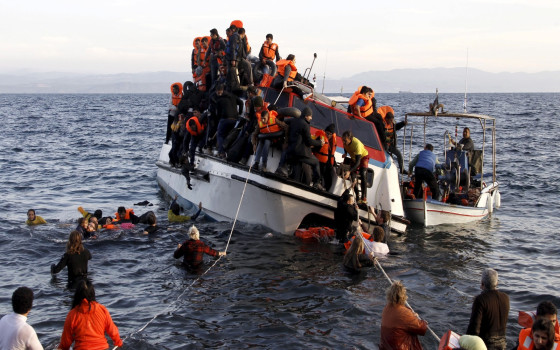
The most deadly ways in which thousands of migrants drowned.. UNHCR calls for action after boat capsizes off the coast of Mauritania

- Europe and Arabs
- Saturday , 27 July 2024 7:53 AM GMT
Geneva - Nouakchott: Europe and the Arabs
The United Nations High Commissioner for Refugees said it is deeply saddened by the tragedy that occurred off the coast of Mauritania this week, when a boat sank, killing at least 15 people and leaving 165 others missing. According to the UN daily news bulletin, a copy of which we received on Saturday morning,
The boat, which left Gambia, sank off the Mauritanian capital, Nouakchott, last Monday while sailing on the so-called western line, carrying 300 passengers, most of them from Senegal and Gambia. The Mauritanian coast guard was able to rescue 120 people, while search and rescue operations continue.
During a press conference in Geneva, UNHCR spokeswoman Shabia Mantoo said that this is the second fatal shipwreck in the region reported this month. “These two extremely tragic incidents underscore the extreme risks faced by desperate individuals who resort to dangerous sea journeys in the absence of safer routes. They do so to reunite with their families, seek better opportunities or escape extreme violence, human rights abuses and dire conditions in their countries of origin,” she added.
According to IOM data, more than 19,700 refugees and migrants have disembarked in the Canary Islands since the beginning of the year and up to 15 July, compared to 7,590 during the same period last year, representing a 160 per cent increase.
Ms. Mantoo stressed that the Western Atlantic route is “one of the deadliest in the world, with thousands of migrants and refugees drowning in recent years.” She said the increase in journeys along the Mauritanian coast reflects “the mixed nature of movements in the West African and Sahel regions amidst the deteriorating economic and security situation in various countries.” The spokesperson said that UNHCR continues to advocate for initiatives that prevent and provide alternatives to the ongoing dangerous movements by sea, including enhanced protection measures, greater solidarity and alternative pathways for admission to third countries. “We need concrete, road-based protection responses to save lives and reduce suffering, as well as to address the root causes of displacement and the drivers of irregular movements,” she said. Mauritania currently hosts more than 238,000 refugees and asylum seekers, most of whom are in the south-eastern region of the country on the border with Mali.












No Comments Found